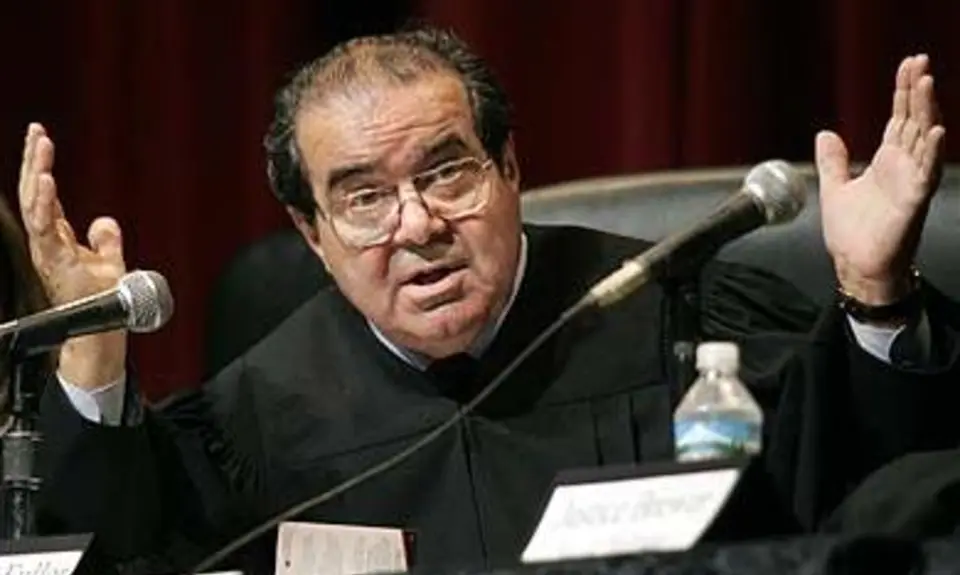During oral arguments in Obergefell v. Hodges this morning, Justice Scalia sought to frame the marriage issue as a question of who decides how to define marriage: the people, or the Court?
At one point, he asked how many states have chosen to allow same-sex couples to marry by legislative act or referendum. When the attorney for the couples also mentioned states whose courts have interpreted their state constitutions as requiring marriage equality, Scalia responded:
But ... that's not the people deciding, it's judges deciding.
But those state constitutions, like the federal one Scalia is tasked to interpret, were adopted by the people. And in adopting constitutional guarantees of Equal Protection, the people agreed to impose powerful and permanent limitations on their future lawmaking. The people agreed that they wanted to be held to a higher standard when, then or at some future point, they decide to pass laws harming a particular group. And the people chose to do so by adopting Equal Protection as a general principle, rather than adopting a specific list of who is worthy of protection.
The Supreme Court should rule that denying same-sex couples the right to marry violates the Equal Protection Clause, a promise the people made to themselves and to us when they adopted the 14th Amendment.
